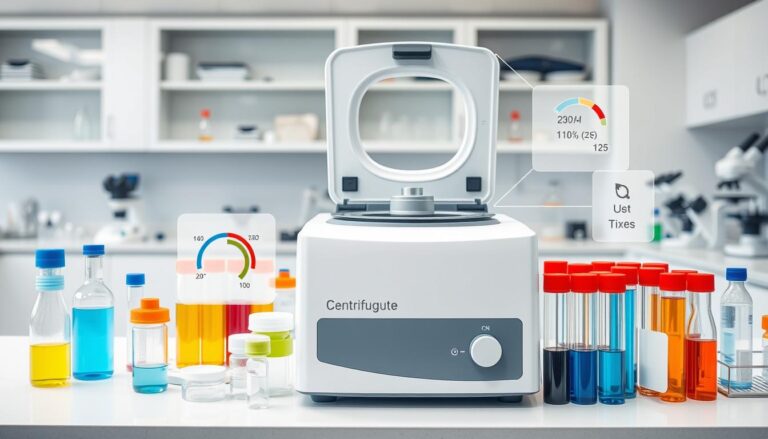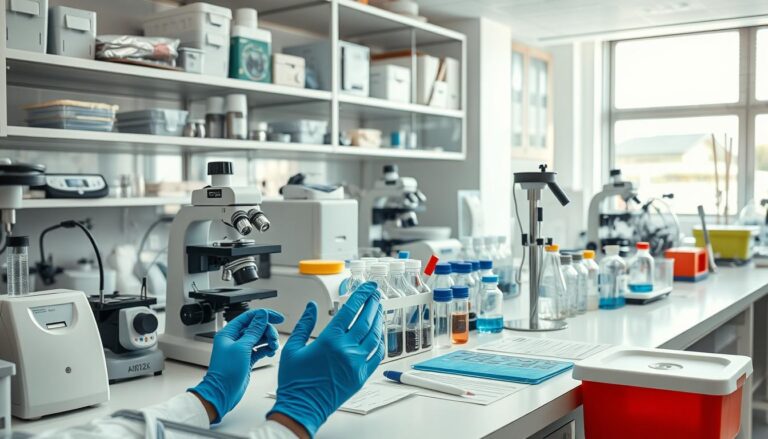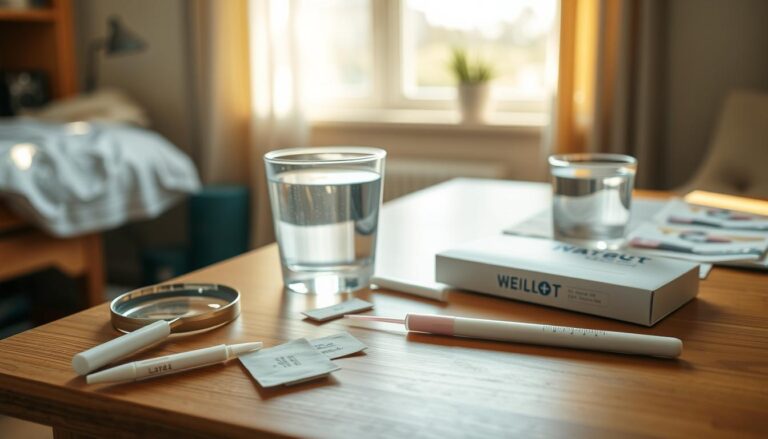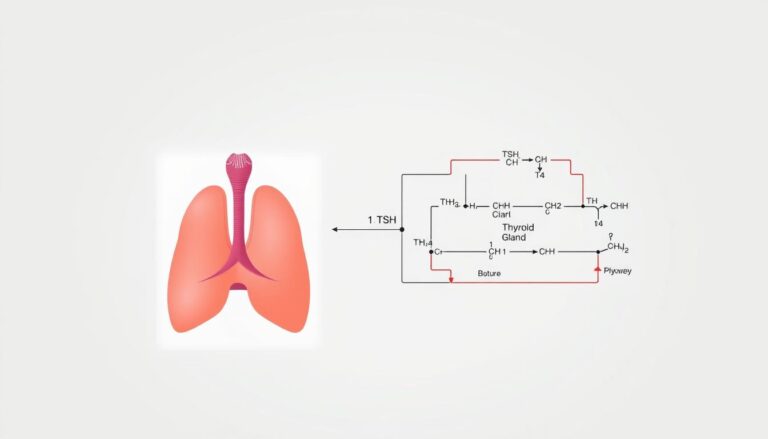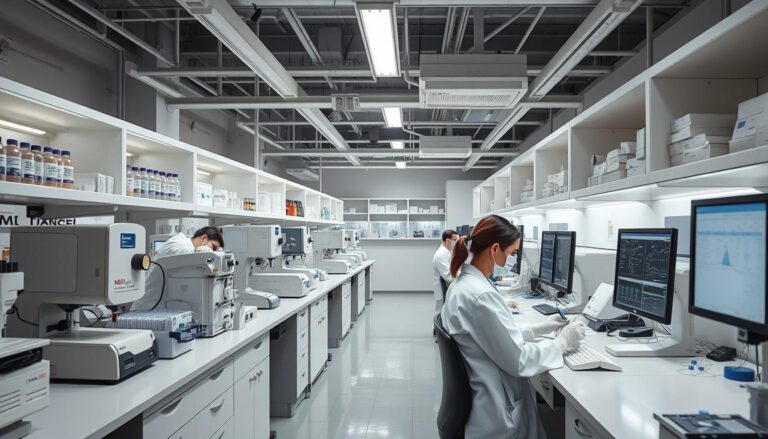The Importance of Fasting Before Blood Tests: What You Need to Know
Have you ever wondered why your healthcare provider asks you to skip breakfast before certain appointments? We’ve all been there—sitting in a clinic waiting room, stomach growling, questioning if that morning cup of tea really matters. The truth is, those hours without food or drinks (except water) play a bigger role than you might think.
Following specific guidelines ensures your body’s chemistry reflects its true state. For example, consuming even a small snack could temporarily alter sugar or cholesterol levels, leading to misleading outcomes. This is why experts recommend an 8–12 hour window of consuming only water prior to screenings. Most clinics schedule these appointments early to make the process easier.
Your doctor’s instructions aren’t just suggestions—they’re designed to protect the integrity of your results. Trusted organizations like the CDC and Allina Health emphasize this practice, as accurate data helps diagnose conditions effectively. Whether it’s managing diabetes or monitoring heart health, preparation matters.
In this guide, we’ll walk you through why these steps matter, how to follow them without stress, and what to expect during your visit. Let’s turn confusion into confidence, one informed choice at a time.
Understanding the Basics of Fasting and Blood Tests
Preparing for lab work involves more than just showing up—it starts with what you don’t consume. Medical guidelines require abstaining from food and beverages (except water) for 8–12 hours prior to screenings. This practice helps stabilize nutrient levels in your system, ensuring results reflect your true health status.
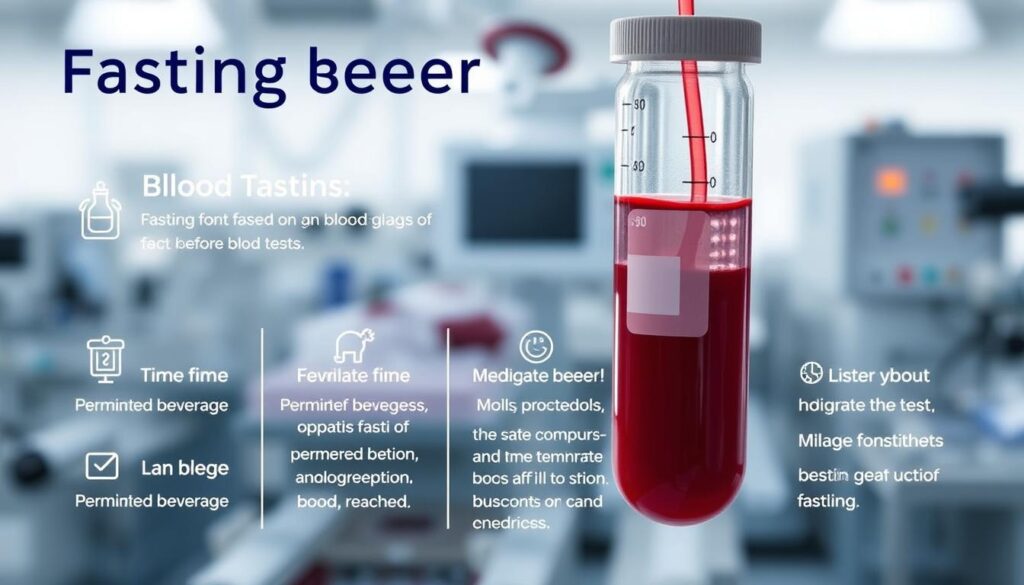
Defining Fasting for Medical Tests
When doctors mention “fasting,” they mean avoiding all food, drinks like juice or coffee, and even habits like chewing gum or smoking. Water is the only exception. Substances like sugar in gum or caffeine in tea can temporarily alter glucose or lipid readings, leading to inaccurate reports. For example, lipid panels and glucose screenings are highly sensitive to recent intake.
How Fasting Affects Blood Sample Composition
Eating or drinking anything besides water triggers chemical changes in your body. A snack raises blood sugar, while fatty foods increase triglyceride levels. These fluctuations might mask underlying issues or create false alarms. Even mild dehydration from skipping water can thicken samples, making them harder to analyze.
Your healthcare provider relies on precise data to guide treatment plans. Following their instructions ensures clarity, whether monitoring cholesterol or evaluating metabolic health. Small choices—like opting for water over chai—make a big difference in your results.
Why Fasting is Essential for Accurate Blood Test Results
Ignoring pre-test dietary guidelines can turn routine checkups into sources of confusion. What you eat hours before lab screenings directly influences key metrics doctors use to assess your health. Even minor deviations from instructions may cloud results, creating unnecessary worry or missed diagnoses.
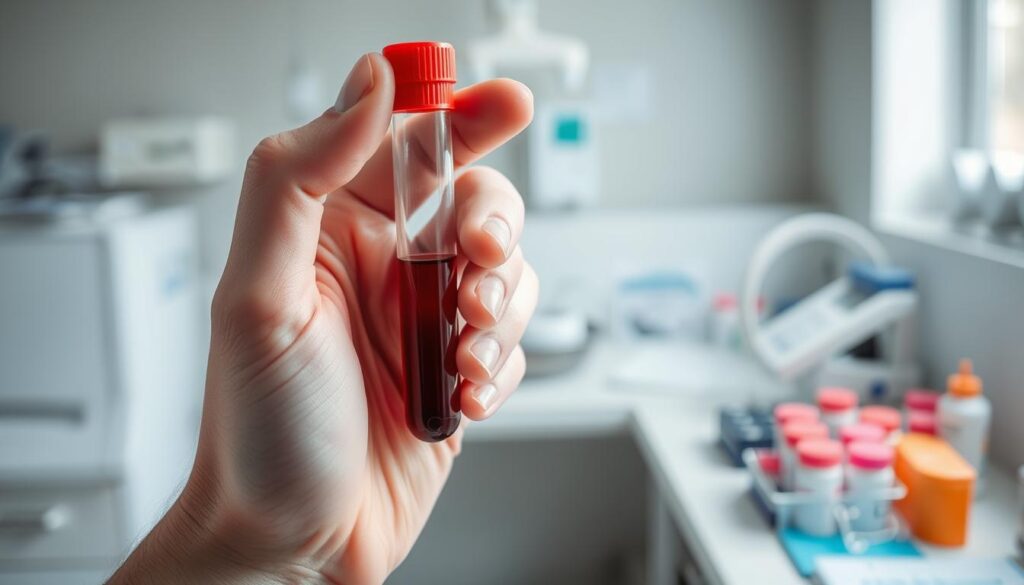
The Impact on Sugar, Cholesterol, and Other Nutrients
Consuming meals or snacks raises glucose levels temporarily. This spike might resemble patterns seen in diabetes, leading to false alarms. For those managing metabolic health, non-fasting readings could mask true trends, delaying proper care.
Lipid panels are equally sensitive. Fatty foods increase triglycerides and LDL cholesterol for up to 12 hours. Elevated numbers might suggest heart risks that don’t exist, prompting unneeded medications or dietary restrictions.
Small choices matter. A handful of nuts or sweetened tea introduces sugars and fats into your system. Labs measure these nutrients to identify deficiencies or excesses. Without a baseline from fasting, comparisons over time lose reliability.
Providers emphasize strict adherence because consistent data drives better decisions. Following their guidance ensures clarity, whether monitoring existing conditions or detecting new ones early. Trust the process—it’s designed to prioritize your well-being.
Determining the Correct Fasting Duration
Ever scheduled a lab appointment and wondered, “How long should I really avoid eating?” The answer depends on what your doctor needs to measure. Most screenings require 8–12 hours without food or drinks (except water) to stabilize nutrient levels. Let’s break down how timing impacts accuracy and ways to simplify the process.
Hours Required and Timing Considerations
Glucose checks often need 8 hours of fasting, while lipid panels may require up to 12. Liver function evaluations sometimes demand avoiding alcohol for 24 hours. Your provider will specify based on the type of screening. Sticking to their timeline prevents skewed results—like elevated triglycerides from late-night snacks.
Scheduling Your Test to Maximize Overnight Fasting
Book morning appointments to align with natural sleep cycles. Finish dinner by 8 PM, and your 7 AM visit automatically covers 11 fasting hours. This approach minimizes hunger and reduces temptation to grab breakfast. Set a phone reminder to stop eating at the recommended time.
If you’re managing diabetes or other conditions, discuss timing adjustments with your healthcare team. They might suggest slight modifications without compromising accuracy. Remember, water stays allowed—hydration keeps veins plump for smoother sample collection.
Preparing for Fasting Before a Blood Test: Essential Steps
Getting ready for your lab visit? Your choices in the hours leading up to it can shape your results. Following simple guidelines helps maintain accuracy while keeping you comfortable. Let’s simplify the process with clear, actionable steps.
What to Eat, Drink, and Avoid Before Your Test
Stick to water during your preparation window. Hydration keeps veins plump, making sample collection quicker and less stressful. Avoid these items 8–12 hours prior to your appointment:
- Coffee, tea, juice, or alcohol
- Chewing gum or mints
- High-sugar snacks or fried foods
Discuss medications with your doctor—some may need adjustments. Light exercise is fine, but skip intense workouts. They can temporarily alter glucose or cholesterol readings.
Plan a small post-appointment snack like nuts or fruit. This helps restore energy without overwhelming your system. Always clarify instructions with your healthcare team if you have diabetes or other conditions requiring meal timing adjustments.
Common Pitfalls and Mistakes During Your Fast
Even careful planning can sometimes lead to slip-ups that affect lab outcomes. Many patients unintentionally consume items they assume are harmless, unaware of how these choices alter their results.
Accidental Consumption: Chewing Gum, Coffee, and More
Small indulgences often cause big problems. Sugar-free gum contains sweeteners that spike insulin levels, while coffee—even black—stimulates digestion and alters metabolic readings. These actions can force clinics to reschedule appointments entirely.
| Mistake | Effect on Tests | Solution |
|---|---|---|
| Chewing gum | Elevates glucose levels | Use water for fresh breath |
| Morning tea | Triggers enzyme activity | Opt for plain water |
| Mints/lozenges | Distorts lipid profiles | Brush teeth without swallowing |
If you realize you’ve eaten or drunk something prohibited, inform your healthcare team immediately. They’ll advise whether to proceed or reschedule. Never hide these details—transparency ensures accurate diagnoses.
Some tests require stricter preparation than others. For example, liver function screenings need alcohol avoidance for 24 hours. Always confirm guidelines with your doctor if uncertain.
Remember: The need to fast isn’t arbitrary. It’s a science-backed method to capture your body’s baseline state. Stay vigilant, and keep water nearby to curb cravings.
Managing Discomfort and Side Effects While Fasting
Feeling lightheaded or irritable during your preparation window? Temporary discomfort is common but manageable. We’ll share practical ways to stay balanced while following medical guidelines.
Strategies for Preventing Low Blood Sugar and Fatigue
Eat a balanced meal rich in complex carbs and proteins before starting your fast. This helps stabilize energy levels. If you have diabetes, keep glucose tablets or juice nearby for immediate use after your appointment.
Monitor symptoms like shakiness or confusion. Sit down if dizzy, and inform clinic staff promptly. Avoid sudden movements to prevent falls.
Effective Hydration and Safe Activity Levels
Drink water regularly—it combats fatigue and keeps veins accessible for sample collection. Limit physical exertion to light tasks like walking or stretching. Heavy workouts can worsen dizziness.
| Side Effect | Quick Solution | When to Contact a Doctor |
|---|---|---|
| Mild dizziness | Sip water, sit quietly | Persists beyond 30 minutes |
| Headache | Apply cool compress | Severe or vision changes |
| Nausea | Breathe deeply, rest | Vomiting occurs |
Carry a small snack like dates or nuts to eat immediately after your screening. This helps restore energy without disrupting results. Always discuss persistent symptoms with your healthcare provider—they can adjust future preparation plans.
Fasting before blood test: Critical Guidelines and Tips
Sticking to the rules ensures your lab results reflect reality. Small oversights—like a mint or sip of juice—can distort readings, leading to unnecessary follow-ups. Let’s simplify the process with actionable steps for success.
| Do’s | Don’ts |
|---|---|
| Drink water to stay hydrated | Chew gum or consume mints |
| Confirm instructions with your doctor | Eat or drink anything besides water |
| Plan a light post-test snack | Skip prescribed medications without approval |
Double-check your appointment time. If your test is at 8 AM, stop eating by 10 PM the prior night. Set phone reminders to avoid accidental slips. Brush your teeth without swallowing toothpaste to maintain freshness.
Inform your healthcare team about supplements or medications. Some may need adjustments. For liver function evaluations, avoid alcohol for 24 hours. Pack a banana or nuts to eat immediately after your visit.
Stay busy with low-energy activities like reading or light chores. Avoid cooking shows or social gatherings where food temptations arise. Hydrate well—water helps maintain vein visibility for smoother sample collection.
Expert Insights and Research Highlights
Medical research continues to confirm why preparation protocols matter for lab evaluations. Leading institutions like the Cleveland Clinic and Mayo Clinic stress that precise measurements depend on standardized conditions. Their studies reveal how even minor dietary choices skew readings, particularly for metabolic health markers.
What Medical Studies and Providers Recommend
A 2023 CDC report found that non-fasting lipid panels misclassified heart disease risk in 22% of participants. Similarly, Johns Hopkins Medicine notes glucose readings can vary by 10-20% after meals, complicating diabetes management. These findings reinforce why clinics insist on strict pre-screening protocols.
Key recommendations from global health bodies include:
- 12-hour fasting windows for triglyceride assessments
- Alcohol avoidance 24 hours prior to liver function evaluations
- Limited water intake to prevent dilution of electrolyte measurements
| Institution | Key Recommendation | Impact on Accuracy |
|---|---|---|
| Mayo Clinic | No coffee 8 hours pre-test | Prevents enzyme interference |
| Allina Health | Discuss medication timing | Avoids false cholesterol spikes |
| CDC | Fast after midnight | Standardizes sugar level baselines |
Open communication with healthcare providers remains crucial. Ask specific questions like, “Should I adjust my insulin dose?” or “Can I take morning vitamins?” This ensures personalized guidance while maintaining scientific rigor. Trusted data starts with teamwork between patients and professionals.
Conclusion
Understanding your body’s needs during lab preparation ensures clarity in health assessments. Following the 8–12 hour window without food or beverages—except water—helps stabilize glucose, cholesterol, and other markers. This discipline allows medical teams to spot trends accurately, whether tracking sugar levels or heart health risks.
Always confirm guidelines with your provider. Some tests require adjustments for medications or meal timing, especially for those managing chronic conditions. Small choices, like skipping morning coffee or avoiding mints, prevent skewed outcomes that could delay care.
If uncertainties arise, ask questions. Healthcare teams prioritize clear communication to align your preparation with lab requirements. Trust their expertise—they design these steps to protect your well-being and diagnostic precision.
By adhering to these practices, you empower professionals to deliver reliable insights. Your commitment today supports informed decisions tomorrow, paving the way for better health management. Stay prepared, stay confident.

